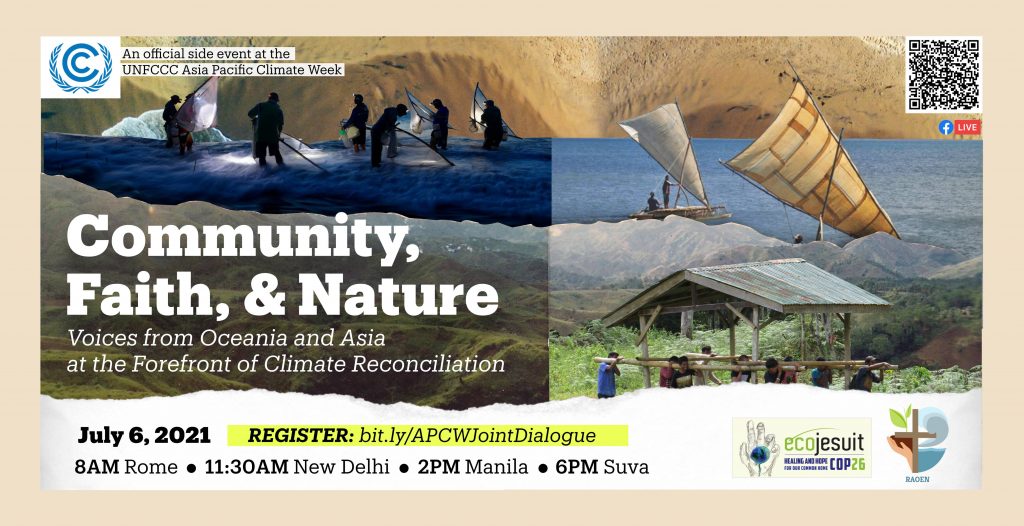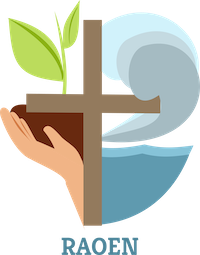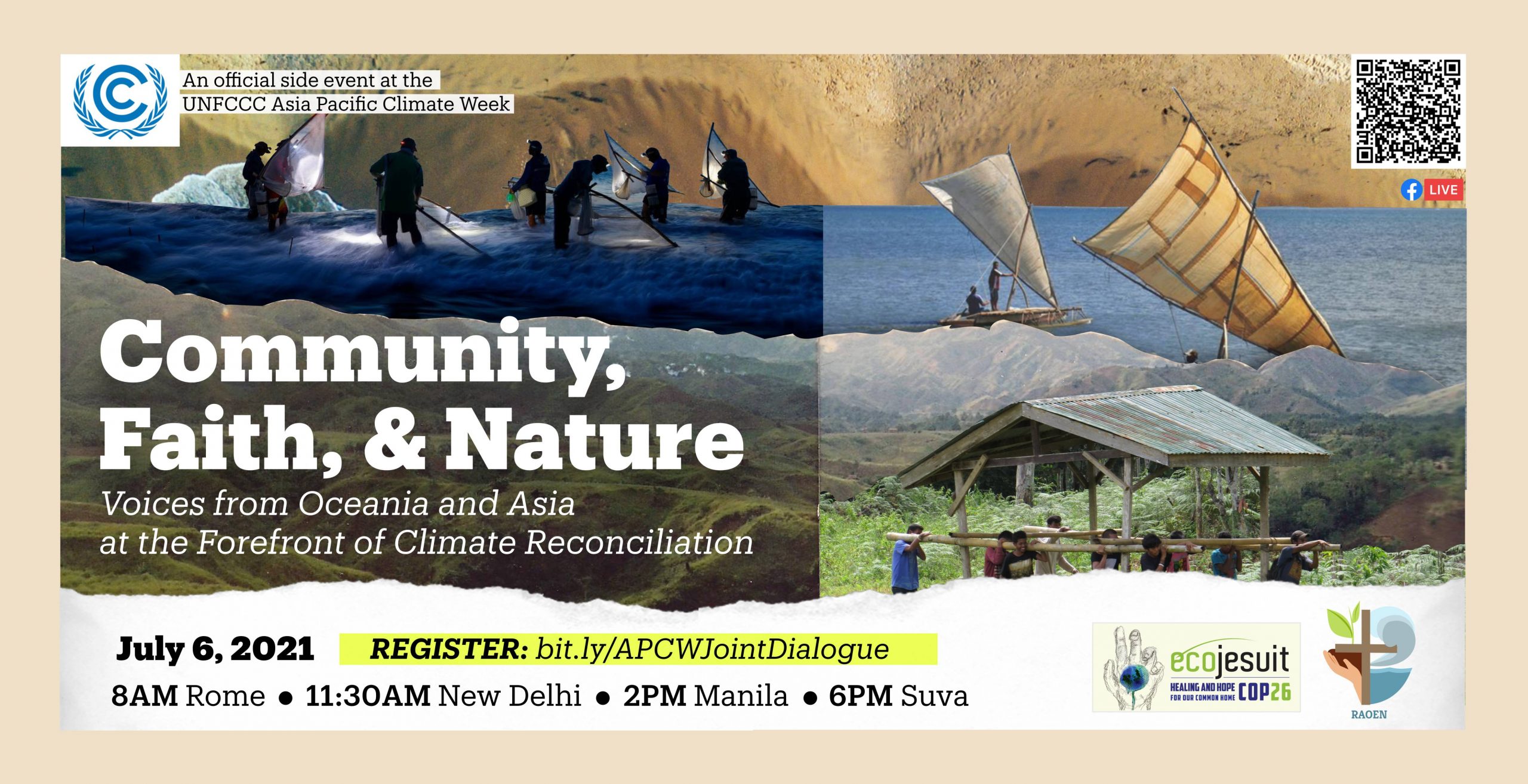Community, Faith, and Nature: Voices from Oceania and Asia at the Forefront of Climate Reconciliation

Ecojesuit, the global ecology network of Jesuits and partners, and the River above Asia Oceania Ecclesial Network (RAOEN) are hosting a joint dialogue on 6 July 2021 to highlight the interconnected roles of indigenous communities, faith, and nature in climate reconciliation.
Community, Faith, and Nature: Voices from Oceania and Asia at the Forefront of Climate Reconciliation is an official side event to the UNFCCC Asia Pacific Climate Week, in line with the thematic track Integrated approaches for climate resilient development.
Extreme weather events and degradation of life systems in our oceans and lands have moved beyond risks and threats and are already happening. This event seeks to promote support for low-carbon actions and practices that many indigenous communities live out through agroecology as a Nature-based Solution (NbS)
This natural local response that is not driven by technology draws its strength from a shared gratitude for creation and the environment that is in solidarity with local needs and the common good. These are the voices that faith-based organizations (FBOs) and movements are listening to in sustaining a reconciliation with the sea and the land.
Science tells us that we only have until 2030 to drastically reduce our emissions (IPCC Special Report on Global Warming of 1.5°C, 2018). Oceans produce 70-85% of the world’s oxygen and in Oceania and Asia, the Pacific Ocean is the biggest climate determinant.
Ocean and forest communities, especially Indigenous Peoples in Oceania and Asia, are at the forefront of the impact and action in response to the climate crisis. They are leading in the struggle for NbS while living in areas where the worst impacts of the climate crisis are deeply felt. They articulate the most urgent need for climate adaptations and highlight the response needed to address the problem at the core, and their voices, not just global corporations, need to be heard more in global discussions.
Addressing the climate crisis will only be possible if Pacific and Asian communities work together and engage in meaningful dialogue that promotes shared learning and collaboration. Oceania and Asia have a unique opportunity to set a global example in broadening the climate dialogue by leveraging on the diversity of cultures and faiths in the regions.
In the process, voices from the ground are empowered, especially the youth, women, and Indigenous Peoples. They are the “disruptors” in the global climate conversations that FBOs are supporting through years of community accompaniment.
This engagement also echoes the urgent call for a radical shift in the business-as-usual leadership in climate action by emphasizing local and indigenous voices, actions, and stories as solutions and ways forward, not just interesting anecdotes. As well, recovery from the interrelated COVID-19 and climate crises cannot happen without addressing the nexus of climate, water, food, biodiversity, and culture.
The global response needs to be in the rapid reduction of carbon and climate action financing while indigenous communities need a reduction of their vulnerabilities in their social environment so they can focus on the local responses needed. Indigenous Peoples and FBOs have a capacity to respond as they are action-oriented with a shared gratitude for creation and a basic recognition of the common good.
To register for the event, visit: bit.ly/APCWJointDialogue


